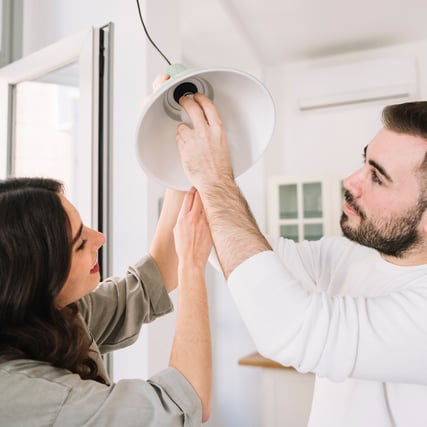
When it comes to renting out a property in South Africa, electrical safety isn’t just a good idea—it’s a legal requirement. Whether you’re a seasoned landlord or just getting started, ensuring that your rental home is electrically sound is crucial for both your tenants’ safety and your peace of mind. Here’s what landlords need to know about maintaining electricals in a rental property:
- Why Electrical Compliance matters
Before leasing out a property, you should obtain a valid Electrical Compliance Certificate (CoC). This document confirms that the electrical installation meets the South African National Standards (SANS 10142).
Importance of a CoC:
- Confirms that all electrical systems, from wiring to distribution boards, are safely installed.
- Shields landlords from legal liability in the event of electrical faults or accidents.
- Ensures that your property is ready for rental through trusted agencies like Rawson.
How to get a CoC
A qualified, registered electrician must inspect your property and certify its compliance. Rawson can help you connect with vetted professionals for a seamless process.
2. Landlord Responsibilities: Keep It Safe and Compliant
Being a landlord comes with clear responsibilities regarding electrical safety. These include:
- Maintaining safe electrical installations: Regularly check that all switches, sockets, and wiring are in good working condition.
- Promptly addressing faults: If your tenant reports an issue, don’t delay—arrange professional repairs without hesitation.
- Replacing faulty electrical equipment: Items like broken light fixtures or malfunctioning geysers should be repaired or replaced immediately by a qualified electrician.
- Ensure Safety Compliance: All electrical work must align with national safety regulations.
3. What Tenants Need to Know
While landlords must maintain electrical installations, tenants also have obligations:
- Report Electrical Issues: Tenants must inform the landlord of any electrical faults or hazards.
- Use Electricals Properly: Tenants should not overload sockets or make unauthorized alterations to the electrical system.
4. Watch for These Common Electrical Problems
Being proactive about electrical maintenance can help prevent emergencies. Keep an eye out for  these common problems:
these common problems:
- Circuit Breakers Tripping Frequently: This may indicate faulty wiring, overloaded circuits, or a defective appliance.
- Flickering Lights: Often a sign of loose wiring or voltage fluctuations.
- Faulty Geysers: A broken geyser can become a major safety risk if left unchecked. Malfunctioning geysers should be repaired or replaced promptly to prevent hazards.
- Exposed or Damaged Wiring: A serious safety concern that requires immediate attention from a professional - never ignore this.
- Best Practices to Stay Compliant
Adopting these habits helps protect both your tenants and your investment:
- Schedule Regular Inspections: Have a qualified electrician inspect the electrical system every two years or sooner if issues arise.
- Use Qualified Electricians Only: Never attempt DIY electrical repairs; always hire a registered electrician.
- Educate Tenants on Safety: Provide basic guidance on electrical safety and proper appliance usage.
By staying proactive and compliant, you can safeguard your tenants, minimise repair costs, and ensure that your rental property adheres to South African regulations. Prioritising electrical maintenance not only reduces risks but also helps maintain the value and functionality of your property.
Let Rawson Rentals Help You Rent with Confidence
At Rawson Rentals, we go beyond simply renting out homes—we partner with landlords to protect their investments and ensure long-term success. Our comprehensive rental services include tenant vetting, maintenance coordination, and legal compliance support.